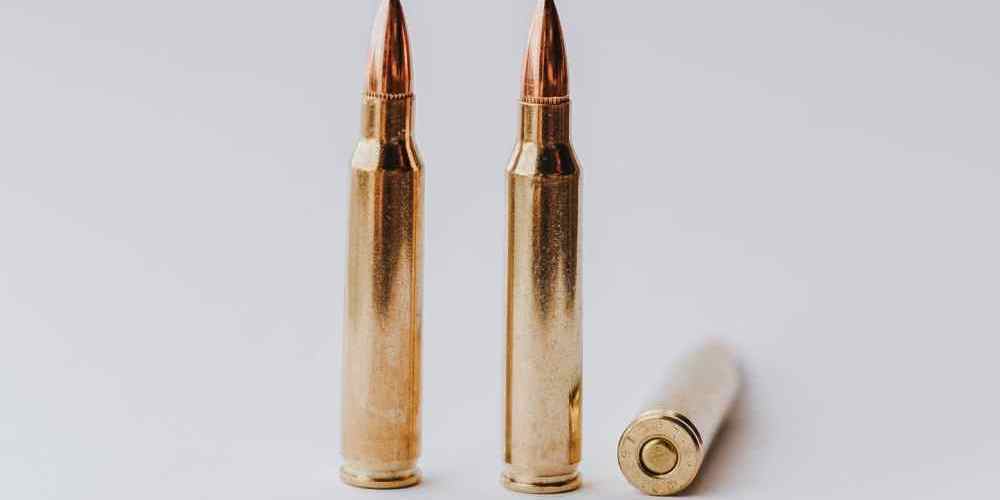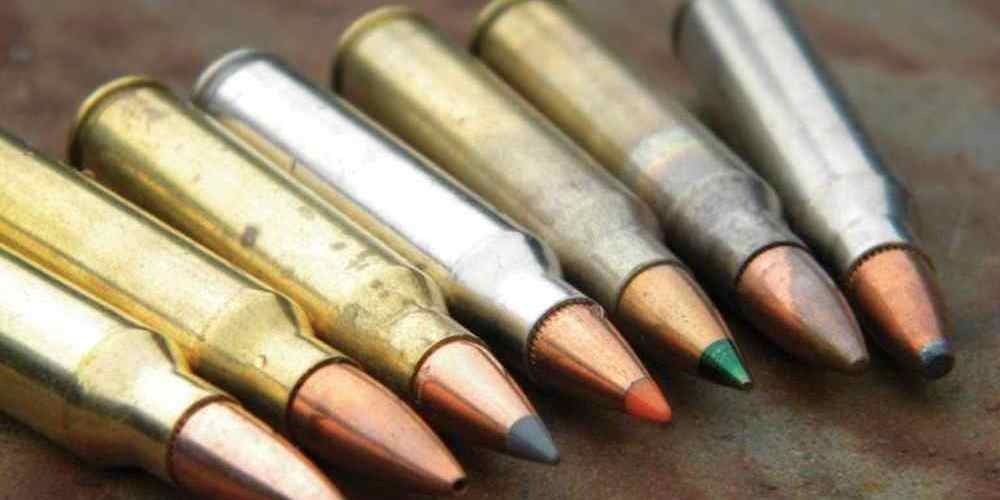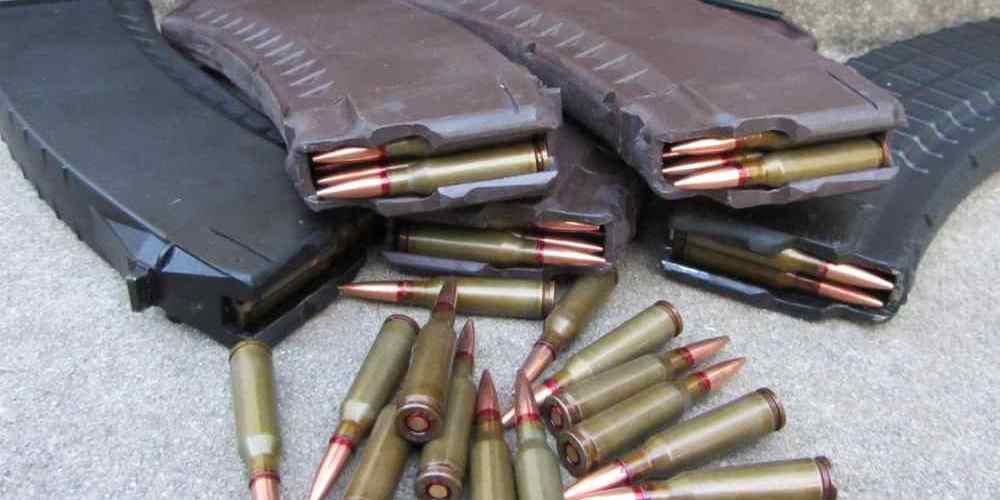Steel vs Brass Case Ammo: Choose the right ammo for optimal performance.
Cost Comparison: Steel vs Brass Case Ammo
When it comes to choosing ammunition for your AR15, one of the key decisions you’ll need to make is whether to go with steel or brass case ammo. Both options have their own set of pros and cons, so it’s important to weigh them carefully before making a decision. In this article, we’ll take a closer look at the cost comparison between steel and brass case ammo to help you determine which option is better suited for your needs.
Let’s start by discussing steel case ammo. Steel case ammo is typically cheaper than brass case ammo, making it an attractive option for shooters on a budget. The lower cost of steel case ammo is primarily due to the fact that steel is less expensive to produce than brass. This can be a significant factor for shooters who go through a large volume of ammunition and are looking to save money on their shooting expenses.
However, there are some drawbacks to using steel case ammo. One of the main concerns with steel case ammo is that it can be harder on your AR15’s chamber. Steel is a harder metal than brass, which can cause increased wear and tear on the chamber over time. This can potentially lead to reliability issues and may require more frequent maintenance to keep your AR15 in top condition.
On the other hand, brass case ammo is known for its reliability and consistent performance. Brass is a softer metal than steel, which means it is less likely to cause excessive wear on your AR15’s chamber. This can result in better overall performance and longevity for your firearm. While brass case ammo is typically more expensive than steel case ammo, many shooters are willing to pay the extra cost for the added peace of mind that comes with using brass.
In addition to the potential for increased chamber wear, steel case ammo also tends to be less accurate than brass case ammo. This is due to variations in the manufacturing process of steel case ammo, which can lead to inconsistencies in bullet weight and powder charge. While this may not be a significant issue for casual shooters, those who require precise accuracy for competition or hunting purposes may prefer the more consistent performance of brass case ammo.
Ultimately, the decision between steel and brass case ammo will come down to your individual needs and preferences. If you’re looking to save money on ammunition and don’t mind potentially sacrificing some accuracy and chamber longevity, steel case ammo may be the right choice for you. On the other hand, if you prioritize reliability, consistency, and overall performance, brass case ammo may be worth the extra cost.
In conclusion, both steel and brass case ammo have their own set of advantages and disadvantages. By considering factors such as cost, reliability, accuracy, and chamber wear, you can make an informed decision on which type of ammo is best suited for your AR15. Whether you choose steel or brass case ammo, be sure to practice safe shooting habits and regularly maintain your firearm to ensure optimal performance and longevity.
Performance Differences: Steel vs Brass Case Ammo
When it comes to choosing ammunition for your AR15, one of the key decisions you’ll need to make is whether to go with steel or brass case ammo. Both types have their own set of advantages and disadvantages, so it’s important to understand the differences between the two before making a decision.

Steel case ammo is typically cheaper than brass case ammo, making it an attractive option for shooters on a budget. However, there are some trade-offs to consider. Steel case ammo is generally not reloadable, meaning you can’t reuse the casings to make your own ammunition. This can be a drawback for some shooters who prefer to reload their own ammo for cost savings or customization purposes.
Another potential downside to steel case ammo is that it can be harder on your AR15’s extractor. The harder steel casings can cause increased wear and tear on the extractor over time, potentially leading to malfunctions or failures. This is something to keep in mind if you plan on shooting a lot of steel case ammo through your rifle.
On the other hand, brass case ammo is more expensive than steel case ammo, but it does have some advantages. Brass casings are reloadable, meaning you can save money in the long run by reusing the casings to make your own ammunition. This can be a big selling point for shooters who are looking to cut costs or who enjoy the process of reloading their own ammo.
Brass case ammo is also generally considered to be more reliable than steel case ammo. The softer brass casings are less likely to cause wear and tear on your AR15’s extractor, leading to fewer malfunctions and failures. This can be especially important for shooters who rely on their rifle for self-defense or other critical situations where reliability is key.
In terms of performance, there are some differences between steel and brass case ammo that may impact your shooting experience. Steel case ammo is typically coated with a layer of lacquer or polymer to prevent corrosion, which can sometimes cause issues with feeding and extraction in certain rifles. Brass case ammo, on the other hand, is less likely to cause these types of problems due to its softer material.
Additionally, some shooters have reported that steel case ammo tends to be less accurate than brass case ammo. This is likely due to variations in the manufacturing process and the quality of the materials used. If you’re looking for the best possible accuracy from your AR15, you may want to consider investing in brass case ammo.
Ultimately, the decision between steel and brass case ammo comes down to your personal preferences and shooting needs. If you’re on a tight budget and don’t mind the potential drawbacks of steel case ammo, it can be a cost-effective option for plinking or target shooting. However, if you prioritize reliability and accuracy, brass case ammo may be the better choice for your AR15. Whichever type you choose, be sure to test different brands and loads to find the best fit for your rifle and shooting style.
Reliability and Durability: Steel vs Brass Case Ammo
When it comes to choosing ammunition for your AR15, one of the key decisions you’ll need to make is whether to go with steel or brass case ammo. Both types have their own set of advantages and disadvantages, so it’s important to understand the differences between the two before making a decision.
One of the main factors to consider when choosing between steel and brass case ammo is reliability. Steel case ammo is generally considered to be less reliable than brass case ammo. This is because steel is not as malleable as brass, which can lead to issues such as failure to extract or eject properly. In addition, steel case ammo tends to be more prone to corrosion, which can further impact its reliability.
On the other hand, brass case ammo is known for its reliability and consistency. Brass is a softer metal than steel, which allows it to expand and contract more easily during the firing process. This can help to ensure that the cartridge seats properly in the chamber and that the firearm functions as intended. In addition, brass is also less prone to corrosion than steel, which can help to prolong the life of your ammunition.
In terms of durability, steel case ammo is generally considered to be less durable than brass case ammo. Steel is a harder metal than brass, which can lead to increased wear and tear on your firearm over time. In addition, steel case ammo tends to be more prone to cracking or splitting, which can render the cartridge unusable.
Brass case ammo, on the other hand, is known for its durability and longevity. Brass is a softer metal than steel, which can help to reduce wear and tear on your firearm. In addition, brass case ammo is less prone to cracking or splitting, which can help to ensure that your ammunition remains in good condition for longer.
When it comes to choosing between steel and brass case ammo for your AR15, it’s important to consider both reliability and durability. While steel case ammo may be more affordable, it may not be as reliable or durable as brass case ammo. On the other hand, brass case ammo may be more expensive, but it is known for its reliability and longevity.
Ultimately, the decision between steel and brass case ammo will come down to your personal preferences and budget. If you’re looking for a more affordable option and don’t mind sacrificing a bit of reliability and durability, steel case ammo may be the way to go. However, if you prioritize reliability and durability and are willing to pay a bit more for it, brass case ammo may be the better choice for your AR15.
Environmental Impact: Steel vs Brass Case Ammo
When it comes to choosing ammunition for your AR15, one of the key factors to consider is the type of casing used. Steel and brass are two common materials used for casings, each with its own set of advantages and disadvantages. In this article, we will explore the environmental impact of steel vs brass case ammo to help you make an informed decision.
Steel case ammo is typically cheaper than brass case ammo, making it an attractive option for budget-conscious shooters. However, steel is not as malleable as brass, which can lead to increased wear and tear on your firearm. Additionally, steel casings are not reloadable, meaning they cannot be reused like brass casings can. This can result in more waste being generated from steel case ammo.
On the other hand, brass case ammo is more expensive than steel case ammo, but it offers several advantages. Brass is a softer metal than steel, which means it is less likely to cause damage to your firearm. Brass casings are also reloadable, allowing you to reuse them multiple times before they need to be replaced. This can help reduce the amount of waste generated from shooting activities.
In terms of environmental impact, brass case ammo is generally considered to be more environmentally friendly than steel case ammo. Brass is a non-toxic metal that is easily recyclable, making it a sustainable choice for ammunition casings. Steel, on the other hand, is a ferrous metal that is not as easily recyclable and can contribute to metal pollution if not disposed of properly.
When it comes to the manufacturing process, brass case ammo typically requires more energy and resources to produce than steel case ammo. This is due to the fact that brass is a more complex material to work with, requiring more steps in the manufacturing process. Steel, on the other hand, is a simpler material that can be produced more efficiently.
In terms of performance, both steel and brass case ammo can be effective in your AR15. However, some shooters may prefer the reliability and consistency of brass case ammo, as it is less likely to cause malfunctions in their firearm. Steel case ammo, while generally reliable, can sometimes be prone to issues such as stuck casings or failure to eject.
In conclusion, when considering the environmental impact of steel vs brass case ammo for your AR15, it is important to weigh the pros and cons of each material. While steel case ammo may be more affordable, brass case ammo is generally considered to be more environmentally friendly and sustainable. Ultimately, the choice between steel and brass case ammo will depend on your personal preferences and shooting needs.
Shooter Preferences: Steel vs Brass Case Ammo
When it comes to choosing ammunition for your AR15, one of the biggest decisions you’ll have to make is whether to go with steel or brass case ammo. Both types have their own set of advantages and disadvantages, so it’s important to weigh the pros and cons before making a decision.
Steel case ammo is typically cheaper than brass case ammo, making it a popular choice for shooters on a budget. The steel casing is also less prone to corrosion, which can be a big plus if you live in a humid or wet climate. However, steel case ammo is not reloadable, meaning you can’t reuse the casings to make your own ammunition. This can be a drawback for some shooters who prefer to reload their own ammo for cost savings or customization.
On the other hand, brass case ammo is more expensive than steel case ammo, but it is reloadable. This means you can save money in the long run by reusing the casings to make your own ammunition. Brass casings are also more malleable than steel casings, which can result in better accuracy and reliability. However, brass casings are more prone to corrosion than steel casings, so they require more maintenance to keep them in good condition.
In terms of performance, both steel and brass case ammo can be effective in your AR15. Steel case ammo is typically coated with a layer of polymer to help with feeding and extraction, but some shooters have reported issues with steel case ammo causing more wear and tear on their firearms. Brass case ammo, on the other hand, is known for its reliability and consistency, making it a popular choice for competitive shooters and hunters.
When it comes to choosing between steel and brass case ammo for your AR15, it ultimately comes down to personal preference. Some shooters prioritize cost savings and opt for steel case ammo, while others prefer the reliability and reloadability of brass case ammo. It’s important to consider your own shooting habits and preferences when making a decision.
If you’re still unsure about which type of ammo to choose, it may be helpful to try out both steel and brass case ammo to see which one works best for you. Ultimately, the best ammo for your AR15 is the one that you feel most comfortable shooting and that performs well in your firearm.
In conclusion, both steel and brass case ammo have their own set of advantages and disadvantages. It’s important to weigh the pros and cons of each type before making a decision. Whether you prioritize cost savings, reliability, or reloadability, there is a type of ammo that will work best for your AR15. Experiment with different types of ammo to find the one that suits your shooting style and preferences.





